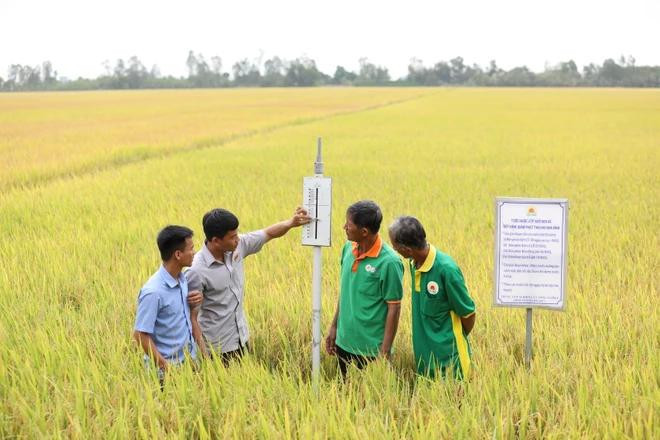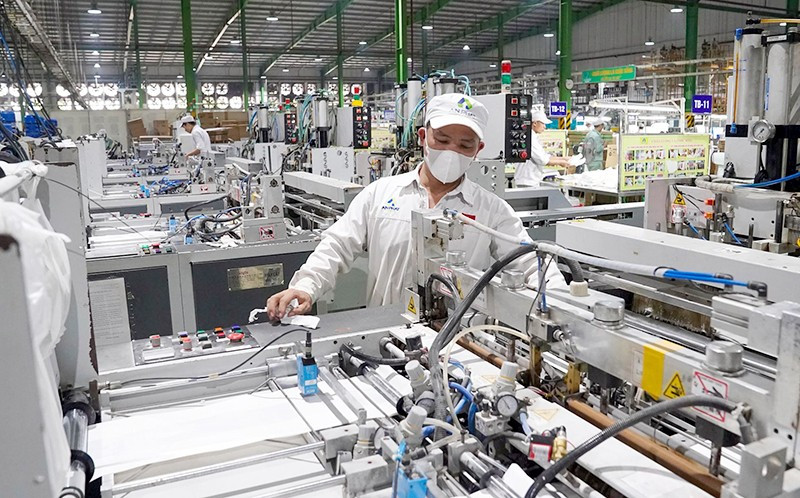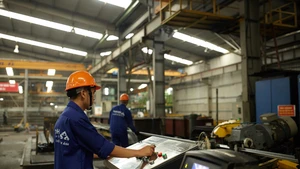Since then, the global carbon credit market has developed rapidly, reaching 3 billion USD by 2020. Notably, countries such as China, India, Brazil, and Mexico are gradually implementing activities to develop the carbon market to mitigate the impact of industrial, agricultural, and transportation activities on the environment.
In Vietnam, the Party and Government have issued assorted policies and legal frameworks aimed at reducing greenhouse gas emissions and establishing a carbon credit trading market.
Since 2012, a project for managing greenhouse gas emissions and trading carbon credits has been implemented. Regulations regarding the carbon market were officially enshrined in Clause 1, Article 41 of the 2014 Environmental Protection Law.
The 2020 Law on Environmental Protection continues to affirm that one of the measures to mitigate greenhouse gas emissions is to organise and develop a domestic carbon market (Article 139).
Meanwhile, according to Decree No. 06/2022/ND-CP (dated January 7, 2022), which regulates the reduction of greenhouse gas emissions and ozone layer protection, the roadmap for developing the carbon market includes a pilot preparation phase starting in 2025 and official operation in 2028.
This market will include activities for trading greenhouse gas emission quotas and carbon credits from exchange mechanisms. Greenhouse gas-emitting facilities must undergo inspections and will be allocated emission quotas for trading on the market.
Regarding Vietnam's preparations for building a carbon market, Nguyen Tuan Quang, Deputy Director of Climate Change under the Ministry of Natural Resources and Environment, stated that Vietnamese enterprises have been trading carbon credits on the voluntary global carbon market since the mid-2000s, through international mechanisms such as Clean Development Mechanism (CDM), Gold Standard (GS), and Verified Carbon Standard (VCS) since 2008, and the Joint Crediting Mechanism (JCM) with Japan since 2013.
Notably, Vietnam has had 150 projects granted 40.2 million carbon credits that have been traded on the global market.
Meanwhile, from 2015 to 2020, the Ministry of Natural Resources and Environment in collaboration with other ministries such as Finance, Planning and Investment, Industry and Trade, and Construction, plus support from the World Bank, implemented a project titled ‘Getting ready for a carbon market in Vietnam’.
The project aims to strengthen capacity for building, implementing and disseminating policy and management tools to mitigate greenhouse gas emissions in accordance with the Nationally Appropriate Mitigation Action (NAMA); build market tools, pilot NAMA to create carbon credits; and build roadmaps to access carbon markets in Viet Nam and the world.
 |
| Vietnam is developing one million hectares of high-quality, and low-carbon rice fields in the Mekong Delta region. (Photo: VNA) |
Despite having significant potential to develop a carbon market, Vietnam still faces many challenges. The lack of its own carbon credit standards forces businesses to rely on international mechanisms without specific guidance for the domestic market.
Although some initial regulations have been issued, detailed regulations on transactions, pricing of carbon credits, and handling violations still need to be specified. In addition, the measurement, reporting, and verification system in Vietnam has not yet met international standards, creating difficulties in the monitoring, reporting, and verification (MRV) of greenhouse gas emissions.
Additionally, the lack of technical infrastructure, suitable human resources, and operational policies for measurement systems is a major barrier to effectively implementing the carbon market.
Furthermore, there is a shortage of qualified human resources who are knowledgeable about developing carbon projects and verifying credits; international carbon credit exchanges are often conducted through agreements between partners rather than through exchanges, making information management more difficult.
It is not to mention that developing and investing in emission reduction projects requires significant costs while financial support from the state and international sources remains limited.
Therefore, there is an urgent need to issue legal regulations related to the domestic carbon market, including clearly defining the scope and scale of carbon credits, and establishing a legal framework for trading credits and greenhouse gas emission quotas; while developing a domestic carbon market compatible with global markets to facilitate transactions at regional and global levels.
Developing a domestic carbon credit exchange will support businesses in buying and selling credits with clear financial mechanisms to ensure liquidity and transparency in the market.
It is also necessary to improve measurement systems, reporting standards, and verification processes.
On another note, it is crucial to enhance inspection mechanisms, which will ensure transparency and fairness in the market; particularly closely monitoring carbon credit transactions, which will help to maintain market integrity by preventing speculation or price manipulation.
















